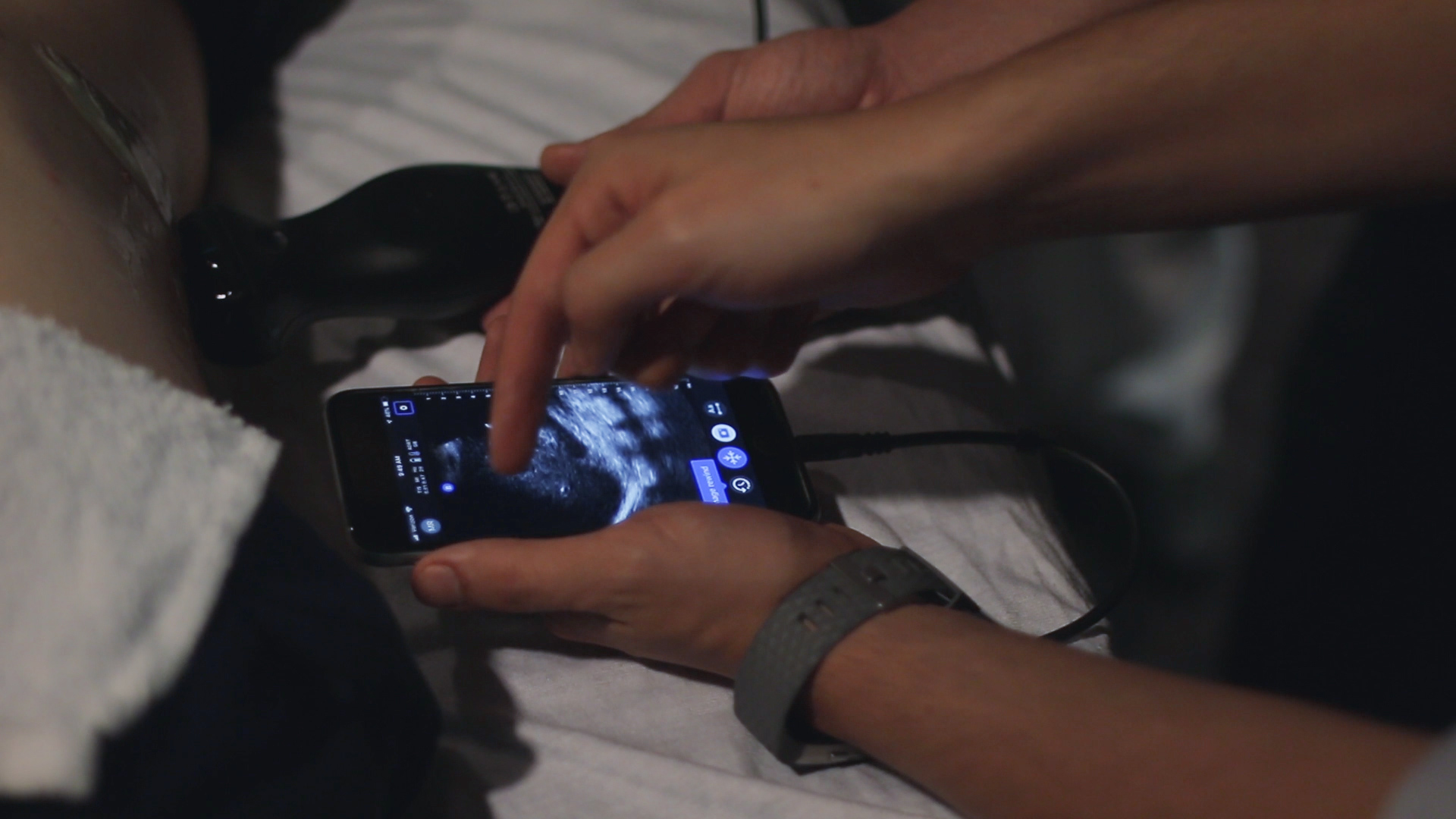In critical care medicine, time is everything – time is heart, time is brain, time is life.
Point-of-care ultrasound (POCUS) is an emerging tool utilized extensively in the Emergency Department at UConn Health to expedite triage, diagnosis, and treatment in critically ill patients.
UConn Health also is leading the charge in POCUS education, with many of its highly qualified specialists instructing other providers in the region and across the country. UConn Health pulmonologist and critical care specialist Dr. Jennifer Kanaan and her team of experts provide in-person courses for instructors in advanced POCUS twice a year, as well as virtual instruction.
“It’s a hard skill set to pick up. There is a lot of muscle memory involved – you have to learn how to acquire images and interpret images that are correct indications for doing the exam,” says Kanaan. It is an invaluable tool in critical care to help appropriately manage very ill patients.
With POCUS, the physician brings the portable ultrasound machine to the bedside. The physician sees inside the body in real time and can quickly determine what is wrong with the patient, with the added bonus of giving the patient another interaction with the doctor, improving patient satisfaction.
The technology is irreplaceable in terms of determining whether the medications or other treatments have been helpful in terms of making the critically ill patient well, Kanaan says.
“Critical care has tremendous applications for patient medicine and most hospitals in the future are going to need to start using this technology regularly,” Kanaan says.
Point of care ultrasound proved very useful during the COVID-19 pandemic as it was able to provide rapid assessments of patients without them needing to be transported through the hospital, thus decreasing risk of infection of other individuals.
UConn School of Medicine is one of few medical schools in the U.S. that requires ultrasound as part of the medical school program all four years. Dr. Meghan Herbst, School of Medicine associate professor and ultrasound director in UConn’s Department of Emergency Medicine, has embedded ultrasound into the medical program.
UConn School of Medicine was the first in the nation to include in its curriculum Butterfly iQ, a portable, full-body ultrasound system that plugs into an iPhone and is powered by a microchip.
“With handheld ultrasound, our medical students can see live images of the inside of the body projected onto a screen in real-time,” Herbst says. “This device promises to be as indispensable to physicians as the stethoscope.”
The robust ultrasound curriculum provides the medical students with a cutting edge technology that provides them with an advantage going into residency, fellowship and their careers.



